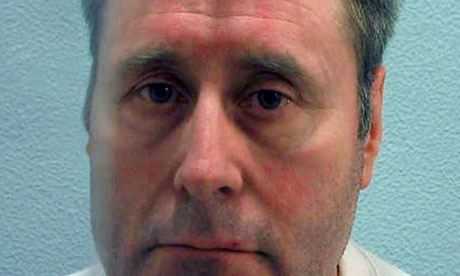Three women, including two who were assaulted by taxi driver John Worboys, say police failings breached their human rights

Two of the women suing the Met were sexually assaulted by taxi driver John Worboys. Photograph: Metropolitan police/AP
Women who say they were let down by the Metropolitan police when they reported rape and sexual assault, including two who were attacked by the taxi driver John Worboys, are suing the force.
The women are attempting to establish that police who fail to investigate such crimes properly are violating victims' human rights.
In 2010 an Independent Police Complaints Commission (IPCC) inquiry found that Worboys remained free to prey on women because officers made serious mistakes and failed to take victims seriously. Five Met officers were disciplined.
Worboys was jailed indefinitely in 2009 after being found guilty of 19 charges of drugging and sexually assaulting 12 women, in one case raping his victim. He has been linked to 85 sex crimes but is suspected of being responsible for more than 100 attacks.
One of the claimants who was assaulted by Worboys said she still had nightmares about what happened when she went to police. "It rings in my ears, the officer saying 'a black cab driver just wouldn't do it'," she said.
"It felt like they didn't want to know. In my dreams I'm screaming 'why won't you believe me?'.
"They need to sort this now and give me some peace of mind. I need closure."
Four officers were disciplined over the case of the third woman bringing legal action, who was 15 when she told police she had been raped. The defendant was acquitted and the IPCC said there were "significant errors" in an investigation that "fell far short of what [the woman] had a basic right to expect".
An internal inquiry into the case, managed by the commission, described a department that was "understaffed, underskilled and overburdened".
The woman's mother said: "We have to do this, because we don't think they should be allowed to get away with it. It's never been about money. It's just the injustice, and the fact we don't want it to happen to someone else."
The women are seeking a declaration that their human rights were breached. All three have previously received apologies from the Met over the way their cases were handled. But their lawyers said they had been caused further distress the force's attempt to block the cases by arguing they have been brought too late.
Harriet Wistrich, who represents the Worboys claimants, said she found the Met's approach "incomprehensible".
"They have been roundly criticised for extremely serious failings in their investigation, yet they are using public money to defend a case, causing further distress to my clients," she said.
Mike Schwartz, a human rights lawyer from Bindmans, said: "The government's obligations to protect its citizen's rights extend beyond simply criminalising sexual assaults and rapes. The police must properly investigate and prosecute serious allegations. The courts recognise that rights are meaningless unless they are enforceable."
Last month the court of appeal ruled that the case relating to the 2005 allegations should proceed despite being out of time. Arguments are ongoing about whether Worboys victims' claims should be heard.
Debaleena Dasgupta, who is representing the claimant in the 2005 case, said: "Our clients want acknowledgment for what has been done to them, and acknowledgment that it was wrong.
"How much better will they feel if, after all they have been through, they know that once that declaration is made, all future victims can rely on the judgment for accountability?
"The judgments would also provide clarification for the police so they know their duties and can take steps to improve their work.
"For those officers determined to do a good job but obstructed by a lack of will from others, this would give them a strong basis to argue for what they need in order to do their jobs properly."
Dasgupta said police should waive the issue of timing and "show some compassion" by arguing the cases on their facts. "Instead they argue about time limits, to prevent, it would seem, the important matter of whether they owe a legal duty to investigate from being determined.
They are causing further delay and distress to people already traumatised."
The taxi driver's victim said: "I just wish the police would have the common decency to see that I've been through enough. It feels like they're turning the knife at every opportunity, still rubbing salt in. Now I'm at the stage where I can't let it go. I can't walk away."
A spokesman for the Met said: "The matter is ongoing, therefore it would be inappropriate to discuss further."
http://www.guardian.co.uk/uk/2012/jul/20/women-sue-met-sexual-assault?CMP=twt_gu
